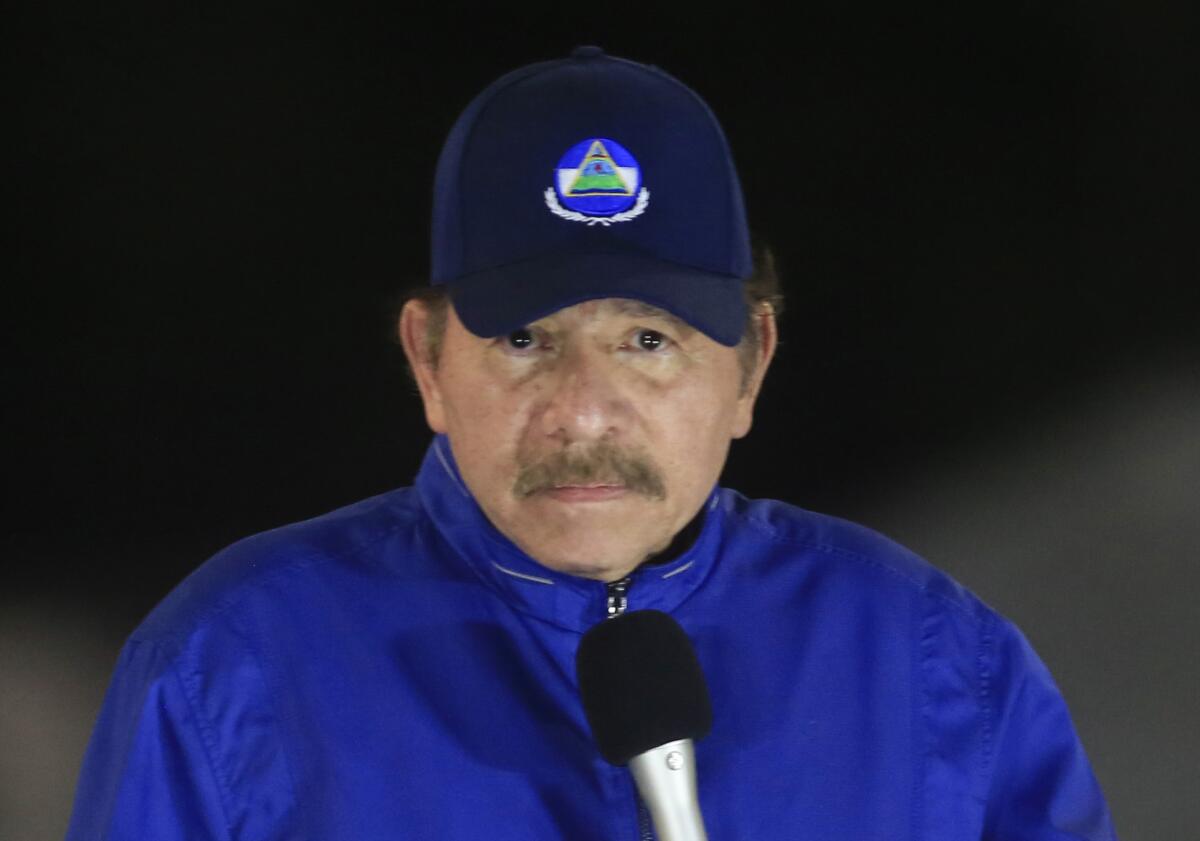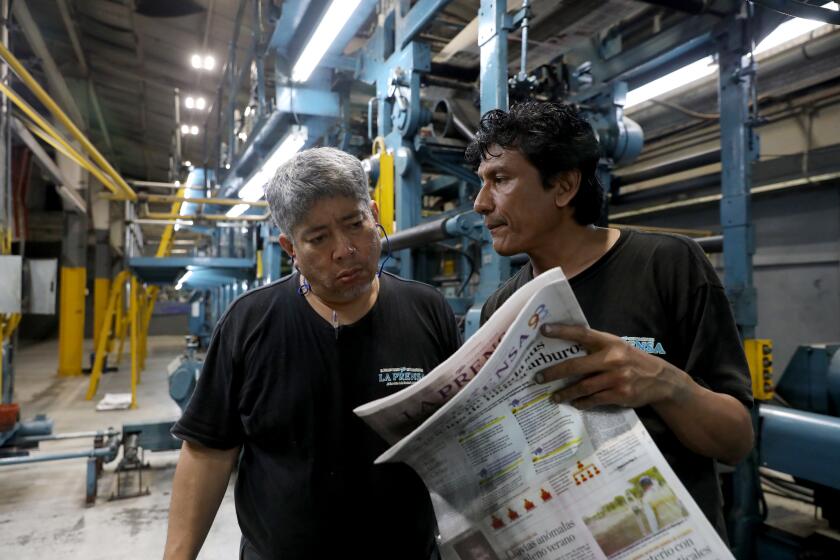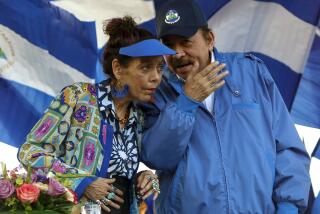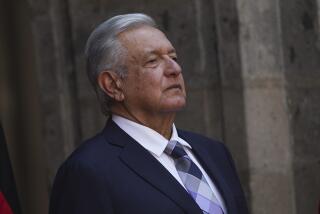Nicaraguan president reappears after absence and calls coronavirus ‘a sign from God’

- Share via
MANAGUA, Nicaragua — Nicaraguan President Daniel Ortega reappeared Wednesday after 34 days in which he was not seen in public.
Ortega made a televised address to the nation in which he said Nicaragua had suffered only one death from the coronavirus pandemic and that the country’s three confirmed cases were “imported.”
There had been concerns about the health of the 74-year-old former guerrilla leader, but he appeared well and was not using a mask during his speech.
Ortega has refused to adopt the social-distancing and lock-down measures used in other countries and has, in fact, encouraged Nicaraguans to participate in mass gatherings.
Nicaraguans “haven’t stopped working, because if this country stops working, it dies,” Ortega said. The government did extend Holy Week school vacations to two weeks; classes are scheduled to resume April 20.
Ortega did not comment on how many tests have been carried out. Experts suspect there are many undetected cases.
Ortega used the address to criticize the United States, saying it was holding Nicaraguan migrants in poor conditions and couldn’t even provide healthcare to its own citizens.
“The biggest power on Earth isn’t able to provide for its own citizens in cities in the United States,” he said. “There is a lack of beds and medical equipment, because healthcare isn’t available to the people, to the poor” in developed nations.
Ortega said the pandemic was “a sign from God” against militarism and hegemony.
Nicaraguan President Daniel Ortega has carried out a war on the press, jailing journalists and closing news outlets. In a blow to the storied La Prensa newspaper, he barred delivery of newsprint and ink.
“These transnational forces that just want to take control of the planet, that is a sin,” Ortega said. “And the Lord is sending us this signal.”
In a statement Wednesday, the rights group Amnesty International said that “the government of President Daniel Ortega is flagrantly ignoring the recommendations of international human rights organizations regarding the COVID-19 pandemic, putting at risk the health and lives of thousands of people in Nicaragua.”
“It’s surprising that, after preventing and suppressing any form of social protest for the past two years, it (the government) is now promoting mass marches and gatherings, exposing the population to the pandemic,” said Erika Guevara-Rosas, Americas director at Amnesty International.
More to Read
Sign up for Essential California
The most important California stories and recommendations in your inbox every morning.
You may occasionally receive promotional content from the Los Angeles Times.











